
ECCHC Supply-side Economics in Healthcare Conference
Friday, May 3, 2024
In 2024, this conference brought together academics, professionals, industry experts and policymakers to discuss the most pressing issues in healthcare economics through the lens of rigorous inquiry and a desire to find solutions by enabling choice and competition.
Location:
In-person & Virtual via Zoom (IN-PERSON REGISTRATION IS NOW CLOSED)
David Rubenstein Forum, 9th Floor | Peter May Boardroom
1201 East 60th Street
Chicago, IL 60637
Why Attend?
The ECCHC has influenced the theory and practice of competitiveness in the healthcare sector.
This conference brings together academics, professionals, industry experts, and policymakers to discuss the most pressing issues in healthcare economics with a focus on rigorous inquiry and a desire to find solutions through choice and competition.
ECCHC produces working papers and publications that impact public understanding and policy through original and innovative research on the efficiencies of competitiveness in the healthcare sector to demonstrate that free market forces can and do work to provide innovative, equitable, and high-quality care. Our research papers on healthcare innovation have been cited by many scholars and policymakers, including in the 2022 and 2023 Joint Economic Report Committee Congress of the United States as well as the Ensuring Pathways to Innovative Cures (EPIC) Act, the latest bipartisan legislation presented in the United States House of Representatives.
Join us and learn about the most recent trends in supply-side economics in healthcare, including the impact of AI on healthcare supply.
Conference Registration
Registration for the 2024 ECCHC Supply-side Economics in Healthcare is now CLOSED.
We hope to see you at next year’s conference!
Conference Speakers

Casey B. Mulligan, Ph.D., University of Chicago
Presentation: The Economics of Buyers Clubs
Casey B. Mulligan is an economics professor at the University of Chicago. Along with Tomas J. Philipson, Casey launched the Initiative on Enabling Choice and Competition in Healthcare (ECCHC), a new initiative that promotes choice and competition in healthcare to maximize efficiency and consumer well-being. The ECCHC takes a unique approach, addressing healthcare issues through a broader economic lens, drawing on insights from industrial organization, macroeconomics, finance, labor economics, and other fields. It presents cutting-edge research on the efficiencies of competitiveness in the healthcare sector, demonstrating that free market forces can and do work to provide innovative, equitable, and high-quality healthcare.
He was the Chief Economist of the White House Council of Economic Advisers from 2018 to 2019. In addition to numerous peer-reviewed journal articles, he has written several books on the economics of healthcare and labor markets, including “Side Effects and Complications: The Economic Consequences of Health Care Reform.” He is a co-author of “Chicago Price Theory” and the creator of TheoryGuru, a software application for automating economic reasoning that received the Wolfram Innovator Award in 2019. He has written numerous opinion pieces and blog posts for the New York Times, Wall Street Journal, New York Post, Chicago Tribune, blogsupplyanddemand.com, and other blogs and publications. His research interests include capital and labor taxation, gender wage disparities, health economics, Social Security, voting, and the economics of aging.
Casey is affiliated with a number of professional organizations, including the National Bureau of Economic Research (NBER), the George J. Stigler Center for the Study of the Economy and State, and the Population Research Center. He has received numerous awards and fellowships, including those from the National Science Foundation (NSF), the Alfred P. Sloan Foundation, the Smith-Richardson Foundation, and the John M. Olin Foundation. He has also served as a visiting professor at Harvard, Clemson University, and the University of Chicago’s Irving B. Harris Graduate School of Public Policy Studies, where he taught public economics. He earned a Ph.D. in Economics from the University of Chicago in 1993 and a BA from Harvard University.
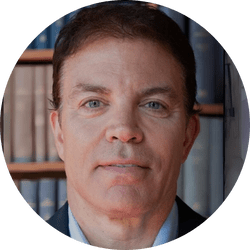
Keynote Speaker: Tomas J. Philipson, Ph.D., University of Chicago
Presentation: The Impact of AI on Healthcare Supply: Perspective from Industry and the Implied Research Agenda
Tomas J. Philipson, Ph.D. is the Daniel Levin Professor of Public Policy Studies at the University of Chicago’s Harris School of Public Policy. He is an associate in the Department of Economics and a former senior lecturer at the Law School. Along with Casey B. Mulligan, Philipson founded and launched the Initiative on Enabling Choice and Competition in Healthcare (ECCHC) in early 2021.
Tomas has held several public sector positions, including serving as a member and Acting Chairman of the White House Council of Economic Advisers between 2017 and 2020. During the second Bush administration, he was the Senior Economic Advisor to the Head of the FDA, and subsequently as the Senior Economic Advisor to the Head of the Centers for Medicare and Medicaid Services. He was Senator John McCain’s health-care advisor during his presidential campaign. He was appointed by the Speaker of the United States House of Representatives to the Key Indicator Commission established by the Affordable Care Act. He has worked as a Scientific Advisor to Congress on 21st Century Cures legislation and on the steering committee for Vice President Biden’s Cancer Moon Shot Initiative.
Tomas is the founding editor of Berkeley Electronic Press’s Forums for Health Economics & Policy and served on the editorial boards of Health Economics and the European Journal of Health Economics. His research has been widely published in all the leading academic journals of economics, including the American Economic Review, Journal of Political Economy, Quarterly Journal of Economics, Journal of Economic Theory, Journal of Health Economics, Health Affairs, and Economica. He has served as a visiting faculty member at Yale University and a visiting senior fellow at the World Bank.
Tomas co-founded Precision Health Economics (PHE), a premium brand health care consultancy firm with offices in dozens of cities throughout the United States, Canada, and Europe. PHE served a multitude of global Fortune 500 healthcare clients on a range of commercial and policy issues around the world. Philipson is currently an advising board member and investor in several healthcare and medical companies that use cutting-edge technology such as Artificial Intelligence (AI). These businesses include iRemedy, Epigenetix, Biologx, Nested Knowledge, and GATC Health. iRemedy is a technology-driven healthcare and medical product distributor that serves government agencies, care providers, and consumers. Epigenetix investigates epigenetic drugs at the preclinical and clinical levels for the precision targeting of lethal cancers, whereas BiologX makes life-saving insulin more affordable to people all over the world. Nested Knowledge provides a platform for storing, extracting, and analyzing published clinical literature to conduct systematic literature reviews. GATC Health is a technology company that uses AI to improve drug discovery and disease prediction. He has also been instrumental in providing information and data on the growth of the weight loss drug market since the 1990s.
Tomas received a PhD in Economics from the Wharton School at the University of Pennsylvania, MA in Mathematics from Claremont Graduate University and Finance from University of Pennsylvania.

Alison Sexton Ward, Ph.D. (Co-Author), USC Schaeffer Center
Presentation: Benefits of Medicare Coverage for Weight Loss Drugs
Dr. Alison Sexton Ward is a Research Scientist at the USC Schaeffer Center for Health Policy and Economics. She is a health economist with extensive experience on healthcare policy and pharmaceuticals. Her research has focused on economic valuations of various therapies and drug classes and the economic implications of drug pricing policies. Alison has spent most of her career working with pharmaceutical manufacturers, government agencies, and non-profit health organizations on topics including drug pricing policies, social value of new treatments, and long-term survival prediction. Her recent work focuses on the burden of obesity and healthcare policies that impact access to new weight-loss medications. She is also investigating whether rising rates of obesity explain any of the increases in pain in the United States. Her work has been published in leading journals in economics and health policy, and it has been presented to members of Congress and the Congressional Budget Office.
Prior to joining USC, Alison worked as a Senior Director at Precision Health Economics where she led research projects on topics in Alzheimer’s Disease, obesity and oncology. She also worked as a Senior Associate with the Brattle Group where she designed and led economic analysis in support of litigation on health-related issues. She holds a Ph.D. in Applied Economics from the University of Minnesota, a M.S in Ag and Resource Economics from the University California Davis, and a B.S. in Managerial Economics from the University of California Davis.
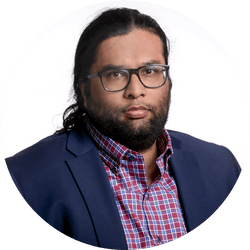
Moiz Bhai, Ph.D., University of Arkansas at Little Rock
Presentation: Occupational Licensing Reform and Healthcare Costs
Moiz Bhai, Ph.D. is an Associate Professor of Economics at the University of Arkansas at Little Rock. His research focuses on the intersections of health and labor economics, as well as the economic and policy implications of practice occupational licensing reform. Moiz states his professional and personal goal is to evaluate policies that can improve the lives of Americans and reduce disparities. He notes a major challenge to improving poor health of Americans is exacerbated by their inability to find a medical provider.
Moiz received a Ph.D. in Economics from the University of Illinois at Chicago, and M.A. in Economics from the University of Illinois at Chicago, and a B.A. in Economics and Political Science from the University of Illinois at Chicago.
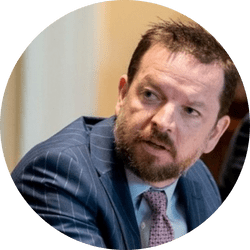
Joseph Grogan, JD, USC Schaeffer Center
Presentation: The Policy Agenda for Healthcare AI
Joseph Grogan, J.D. is a healthcare expert with a unique blend of private sector and government experience spanning over two decades in the Washington, D.C. healthcare arena. Grogan is a trained lawyer who began his healthcare career as Executive Director of the Presidential Advisory Council on HIV and AIDS in the Administration of George W. Bush. He went on to serve as Special Assistant to Commissioner Andy Von Eschenbach at the Food and Drug Administration (FDA). In the private sector, he worked asan advisor to Wall Street and private equity investors. He served at the Office of Management and Budget (OMB) as Associate Director of Health Programs, clearing every major regulation and guidance issued by the Department of Health and Human Services (DHHS), drafting the health sections of three Presidential Budgets, and managing over $1.3 trillion in health care spending. He went on to the West Wing, serving as Domestic Policy Advisor, taking the lead on health care policy development, and serving as one of the original members of the President’s Covid Task Force.
After leaving Government service, Joseph founded a consulting firm and the AI Healthcare Working Group, a collection of Federal and State health policy experts examining the current regulatory framework surrounding AI.
He received a JD from the College of William & Mary, and a BA from the State University of New Yor at Albany.
Virtual Conference Recordings
The 2024 ECCHC Supply-side Economics in Healthcare Conference convened both in-person and virtually on Friday, May 3. Watch the full conference, or individual presentations, below:
Conference Schedule
8:00 – 8:45 a.m.
Check-in and Badge Pickup at Rubenstein Forum, 9th floor.
Light refreshments will be provided.
8:45 – 9:00 a.m.
Welcome and Introduction
Casey Mulligan, University of Chicago
9:00 – 9:45 a.m.
Session 1: The Economics of Buyers Clubs
Presenter: Casey B. Mulligan, Ph.D., University of Chicago
9:45 – 10:30 a.m.
Session 2: Benefits of Medicare Coverage for Weight Loss Drugs
Presenter: Alison Sexton Ward, Ph.D. (Co-author), USC Schaeffer Center
10:30 – 10:45 a.m.
Break
Light refreshment will be provided.
10:45 – 11:30 a.m.
Session 3: Occupational Licensing Reform and Healthcare Costs
Presenter: Moiz Bhai, Ph.D., University of Arkansas at Little Rock
11:30 a.m. – 12:45 p.m.
Keynote Speaker Luncheon
11:45 a.m. – 12:45 p.m.
Session 4: The Impact of AI on Healthcare Supply: Perspective from Industry and the Implied Research Agenda
Keynote Speaker: Tomas J. Philipson, University of Chicago
12:45 – 1:00 p.m.
Break
Beverage refreshments will be provided.
1:00 – 1:45 p.m.
Session 5: The Policy Agenda for Healthcare AI
Presenter: Joseph Grogan, JD, USC Schaeffer Center
1:45 – 2:00 p.m.
Closing Remarks
Casey Mulligan, University of Chicago
2:15 – 3:45 p.m.
Fellowships’ Roundtable (by invitation only)
Casey Mulligan and Tomas J. Philipson, University of Chicago
Partnerships & Support
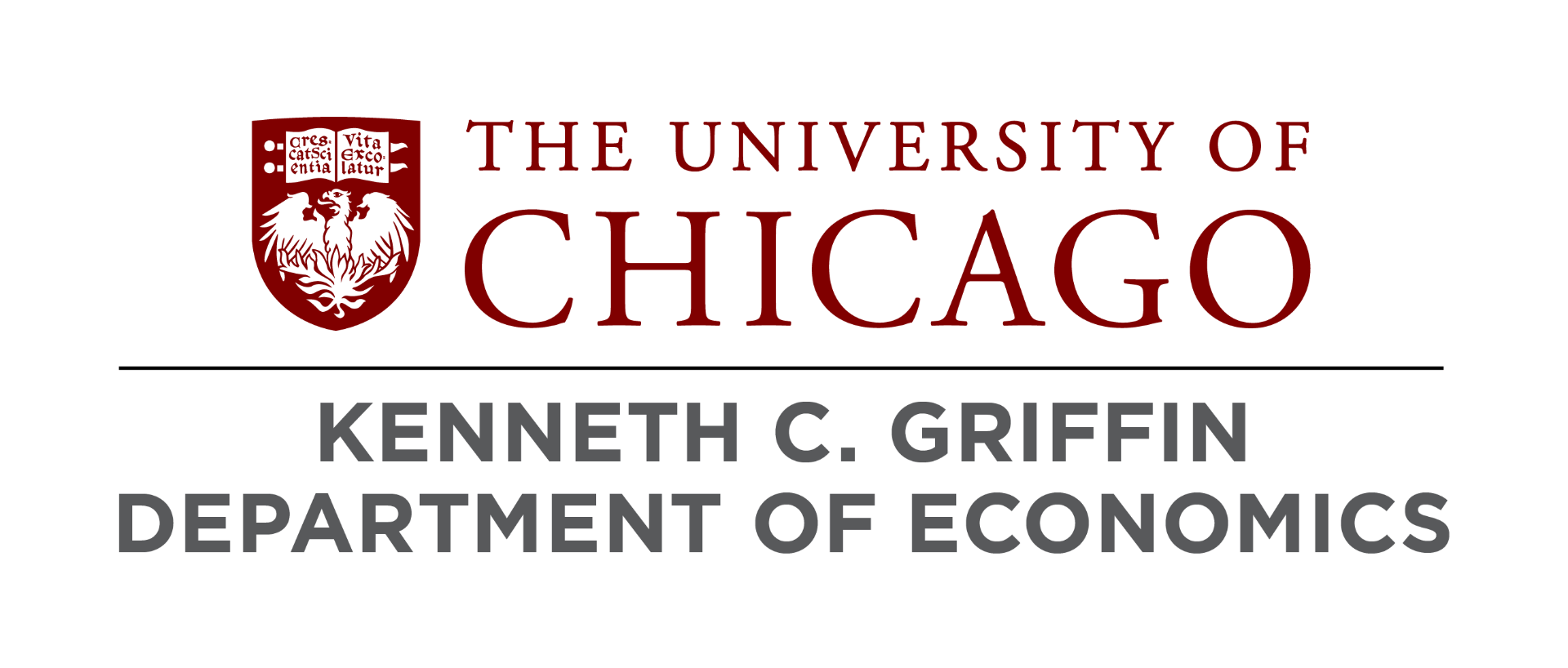
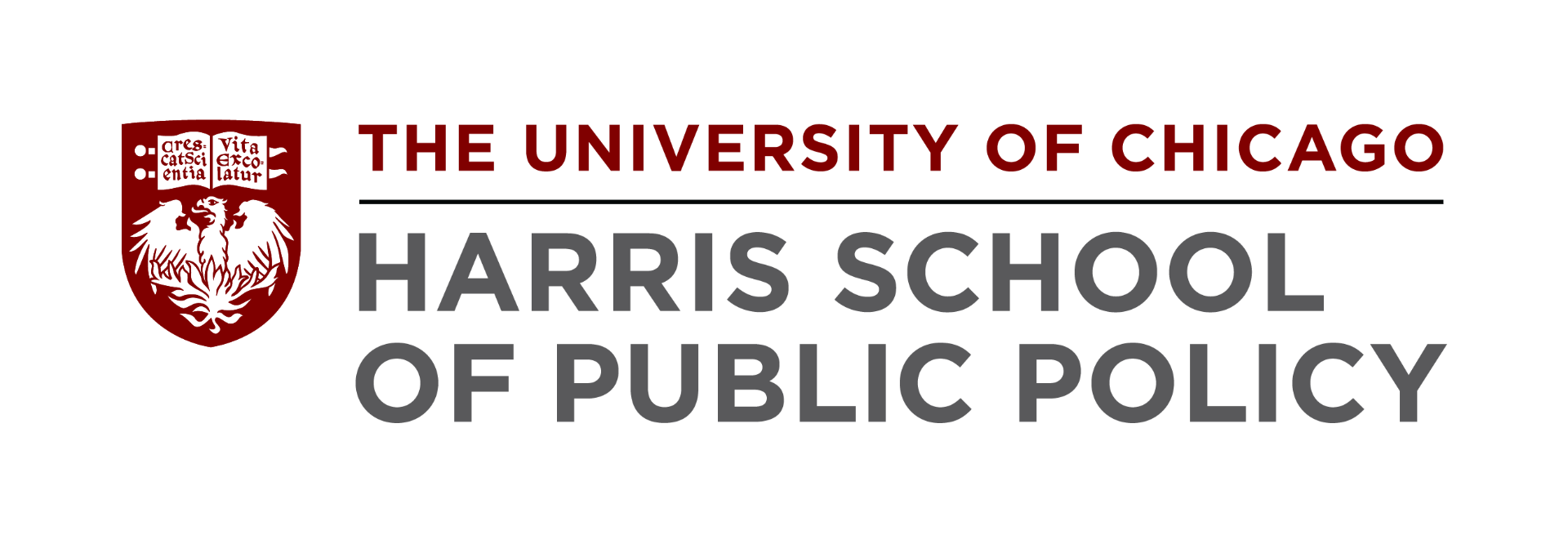
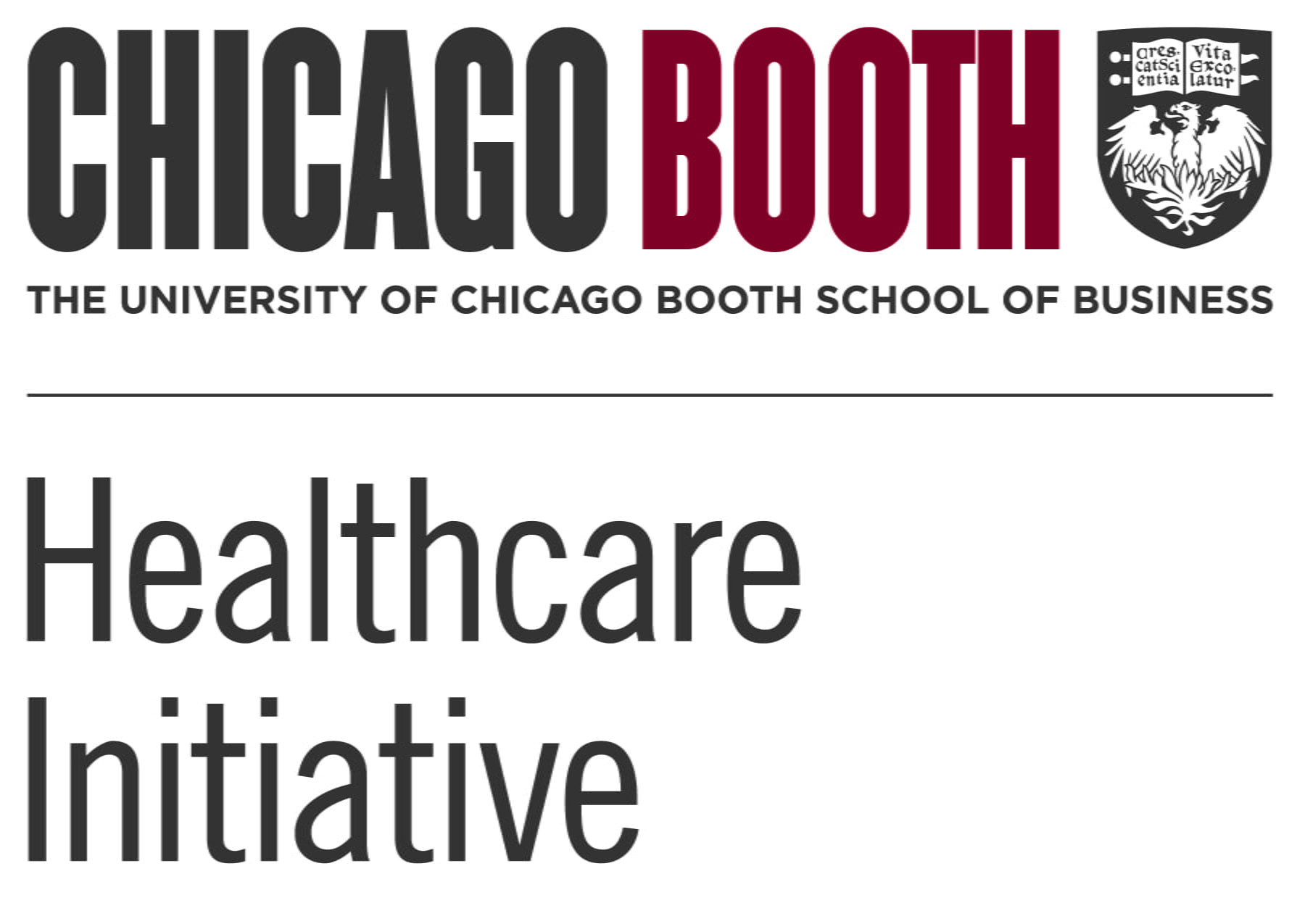
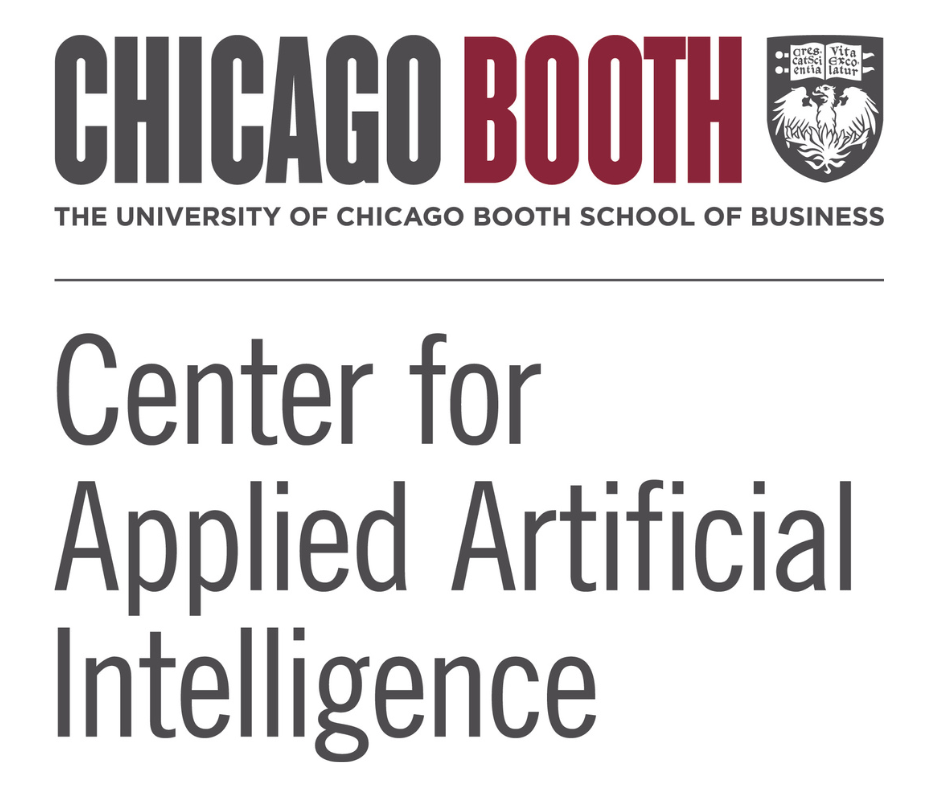
Interested in sponsoring this conference next year? Contact ecchc@uchicago.edu.
